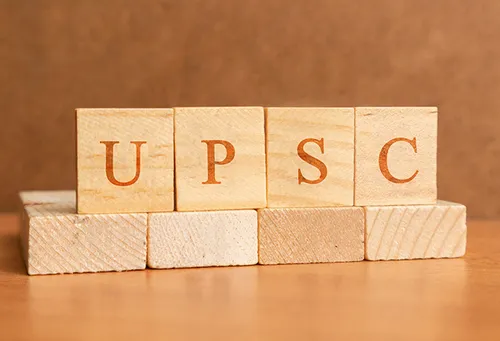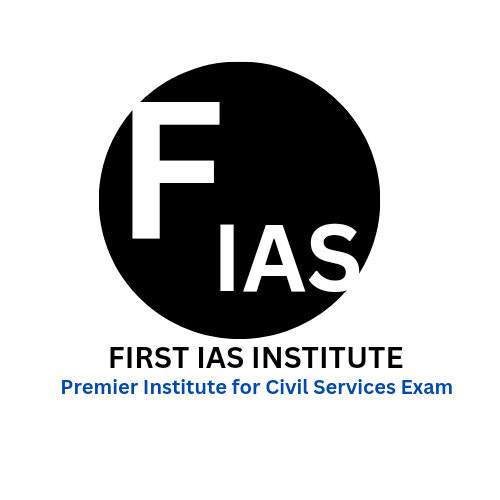
List of optional subjects in UPSC Civil Services Exam
The UPSC test is very important in India. It is the top test for students. The Civil Services Test is the most important one in the country. Students who want to take the course must learn about many parts of the test. One big part is knowing the list of extra subjects for the Civil Services test that students can pick from. Students must choose one extra subject for the civil services test and another for reading. They must turn in two essays for the course. The essays for the course will be long answers and are thought to be the hardest part for students.
Civil Services UPSC Optional Subjects List
- Anthropology: The Anthropology syllabus for the UPSC exam will cover different branches of anthropology, society, and theories. You also have to study the applications of Anthropology in real life and the details of the Indian caste system.
- Animal Husbandry and Veterinary Science: It is an optional Specialization that covers the subjects of Animal Nutrition and Physiology in animals. The syllabus covers animal reproduction and livestock management. The subject deals with the existence of animals and how they are going extinct each day.
- Agriculture: It is a very essential subject of the civil services exam. The subject’s syllabus is based on Indian ecology and its crop management. Seed production and farm management are also essential aspects of the subject and are relevant to the Indian food production system.
- Botany: Microbiology and Plant Biology are the major subjects of the UPSC exam, with Botany as optional. The syllabus covers details of Cryptogams and Phanerogamae. It helps you understand about the plant resource development as well.
- Civil Engineering: It is an essential part of the Indian education system. Students with an engineering background might opt for this optional subject with a syllabus regarding microengineering and building science.
- Chemistry: The students with a science background opt for this optional subject. The syllabus covers details of the Atomic Structure and Transport Phenomenon. Organic chemistry is an integral part of the syllabus as well.
- Commerce and Accountancy: The students with a commerce background choose this specialization that deals primarily with cost and financial accounting. Taxation and human resource operations are also an essential part of the syllabus.
- Electrical Engineering: The major syllabus of electrical engineering deals with signals and systems with the EM Theory. Digital electronics and energy conversion are important parts of the subject. The second-year course deals with electronic conversion and power system protection.
- Economics: Economics is an optional subject that is a primary attraction for students. The Indian economic system is the primary part of the syllabus with Advanced Macro Economics. Finance and money banking are important parts of the syllabus.
- Geology: It is the subject that deals with remote sensing and geomorphology. Structural geology is also a part of the syllabus. Mineralogy is an effective part of the syllabus in the second paper.
- Geography: It is an essential optional subject. The syllabus covers the basics of India, climate, and Geomorphology.
- History: It is another optional subject that is hugely attractive. History and civics combine, so getting a civil service job with this education becomes easy. The Indian History is the major part of the syllabus.
- Law: The LLB students should select this subject as optional for their civil services exam. The syllabus covers administrative and constitutional law. The Indian law is completely an essential part of this subject. This subject will help you get top-level jobs in civil services.
- Mathematics: It is a subject that has good recognition, but the subject is difficult. Linear algebra and calculus is an essential part of the syllabus. It also covers sections on Mechanics and Complex Analysis.
- Management: Human Resource management and organizational behavior are important to the syllabus. The syllabus also covers the operations and production management with information systems.
- Medical Science: Students understanding human anatomy and physiology should select this as an optional subject. It is an effective part of the syllabus and deals with many essential General medicine and dermatology sectors. The 2nd paper on medical science is very difficult.
- Mechanical Engineering: It is considered the most difficult Engineering subject of all. The syllabus covers mechanics and manufacturing science in detail. Heat transfer and the study of engines is an important part of the syllabus.
- Physics: It is an optional subject for which the students are less interested and do not opt. The physics syllabus is very difficult and deals with Mechanics, Particles, Waves, and Optics. A huge part of the syllabus deals with quantum physics.
- Psychology: The foundation of psychology is an important part of the syllabus. It deals with methods of psychology like sensation, attention, and perception. Psychological measurements and individual differences are a primary part of the second-year syllabus.
- Philosophy: Philosophical knowledge will help you get selected for the civil services. The syllabus covers the history and problems of philosophy, socio-political philosophy, and Philosophy of Religion.
- Public Administration: Understanding the public makes it effective to get a job at the top level of civil services. This subject covers a syllabus of Administrative behavior and techniques of administration. It also covers the Union government’s understanding and the constitutional framework of the Indian government.
- Political Science and International Relations: Political Science is a primary subject that students select for the civil services exam. Understanding Indian politics and International Relations will help a civil servant of the country. The subject’s syllabus covers Indian Nationalism and Indian Relations with the World.
- Statistics: It is an important concept but is very difficult to understand and clear. The syllabus of the subject covers Linear Inference and Multivariate Analysis. Industrial Statistics and Optimization Techniques are a primary part of the second paper.
- Sociology: Understanding Social Science is very important for a Civil services job. Students opt for sociology for a successful career. The syllabus deals with Sociology as a Science and its effect on human life.
- Zoology: The Zoology syllabus covers details of Non-Chordata and Chordata. It deals with Ecology and Economic Zoology. Cell Biology and Genetics are a primary part of the paper.
List of Optional Subjects of Literature in the UPSC Exam
The students can also opt for a literature-optional subject even if they didn't have that language in their graduation. The options are:
- English: Students with a strong grasp of the English language and a good understanding of it should select it as their optional language. Taking it will help you have great scope in your career. It deals with essential novels of Shakespeare and other famous English writers.
- Assamese: It is a local language of the state of Assam and is suitable for students coming from that section of the country. The syllabus deals with introduction, literary history, and criticism. It has texts like Ramayana in Assamese.
- Bodo: The syllabus of the Bodo Subject covers the history of the Bodo language and Bodo Folk literature. It deals with the contribution of missionaries and the critical analysis of various genres in the Bodo language.
- Bengali: Bengali has a long history that is a part of the syllabus. Some sentences tell of past writers and their works, while others explain the language’s roots. People from Bengal mainly speak Bengali now. It comes from India and has a rich literature. Authors wrote novels and poems in different styles as a part of the subject.
- Dogri: It is a local Indian language, and the syllabus covers the history of the Dogri language in Indian civilization. It also covers the details of the development of modern poetry in the Dogri language.
- Gujarati: The local language of Gujarat is Gujarati, and is also a traditional language of India. The syllabus of Gujarati optional language covers the formation and history of the language with its literary forms. The criticism of the language is also a part of the Syllabus.
- Hindi: The most famous and well-known Indian language is Hindi. The optional subject of Hindi is available that has a primary attraction. The subject’s syllabus covers the history of the Hindi language in India. Nagar Lipi is an important part of the subject. Hindi literature is an important part of the second paper.
- Kannada: It is a South Indian language, and the subject is famous among South Indian students. The syllabus deals with the literature and history of Kannada in India and poetry and novels in the famous language.
- Konkani: The Konkani language syllabus is Konkani history and literature, including poems and novels.
- Kashmiri: It is a language famous in North India; the syllabus covers the Geographical relationship of the Kashmiri language and its syntactic structure.
- Malayalam: It is another South Indian language. The syllabus covers the details of the Early Phase of the Malayalam language, its linguistic features, and the Standardization of the language.
- Maithili: The Syllabus for the Maithili language is the history of the language in India, with its literature covering texts and novels.
- Marathi: It is a common language of Maharashtra, and the syllabus covers its Folklore. It also deals with its history and literary criticism.
- Manipuri: The local language of Manipur is Manipuri, and the syllabus of the subject covers the old Manipuri literature and its poetry and Epics.
- Nepali: The language followed in Nepal is Nepali, and the syllabus of the subject is the history and literature combined with the similarities of the local Indian Languages.
- Odia: The language followed in Odisha is Odia. The syllabus for this subject is History and Literature of the Language. The second paper deals with poems, novels, and ancient texts.
- Punjabi: The local language of Punjab is Punjabi. The subject as literature optional covers a syllabus of its part in Tatsam and Tad Bhav form and the contribution to Linguistic studies.
- Santhali: The syllabus for Santhali is its history and the literature of Prominent poets of the language.
- Sanskrit: The most ancient language of the country is Sanskrit. The syllabus covers its history, international existence, and connection with Medical studies. Literature with poems and prose of the great ancient Indian writers.
- Sindhi: The syllabus for the Sindhi language is its origin and evolution. The second paper deals with literature and its socio-cultural conditions in different periods.
- Tamil: It is another South Indian language. The syllabus covers its history and literature.
- Telugu: Another ancient Indian language is Telugu. The subject covers a syllabus of ancient manuscripts and poetry of famous writers.
- Urdu: It is a famous North Indian language, and the syllabus deals with its existence and origin. The rich Urdu language literature is the second paper’s primary part of the syllabus.
Conclusion
The students should select an optional subject out of 48 and submit two papers worth 250 marks each. The syllabus of each exam is divided into two parts, and the students must take an exam with a total of 500 marks.

 firstiasofficial@gmail.com
firstiasofficial@gmail.com